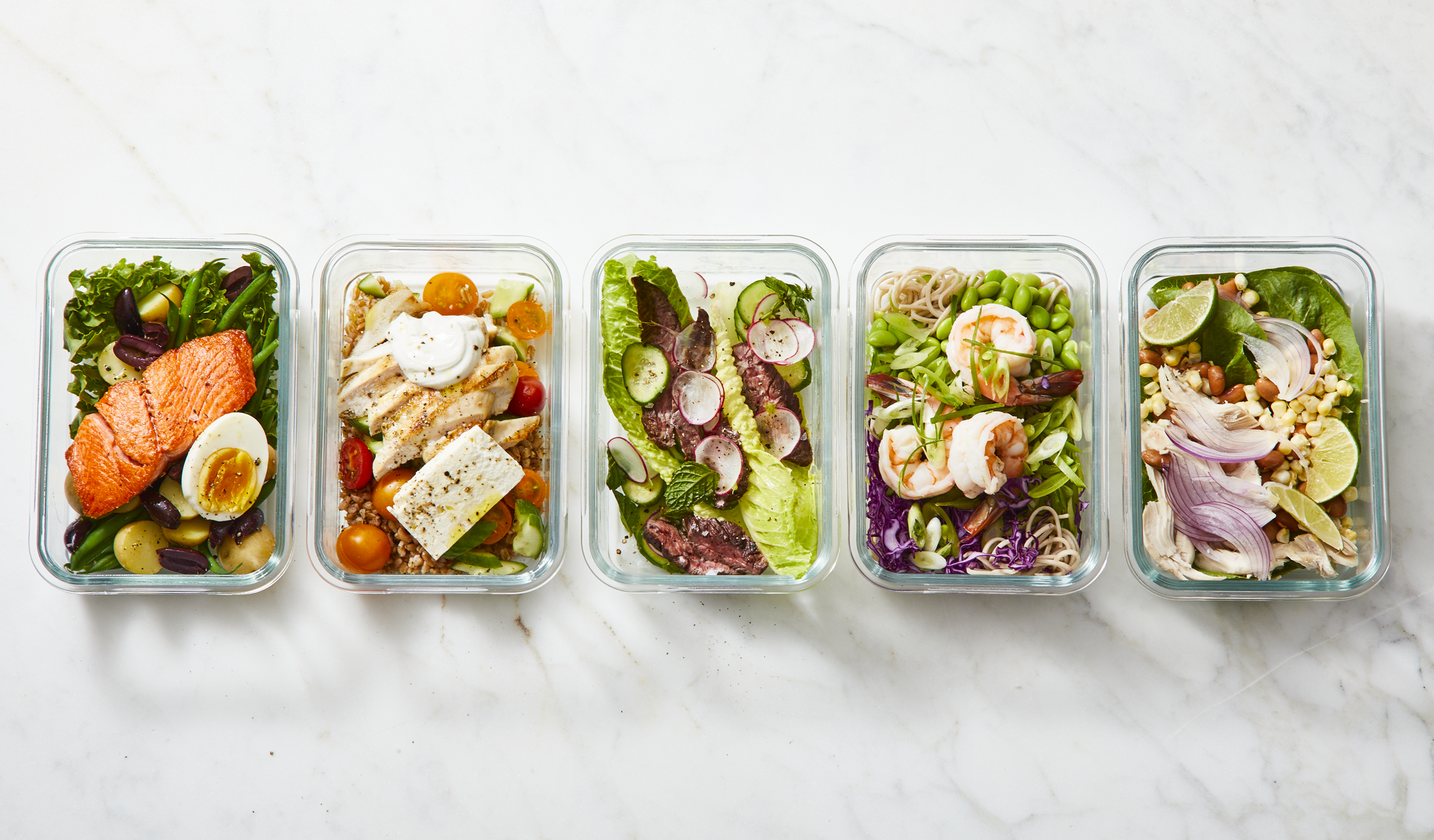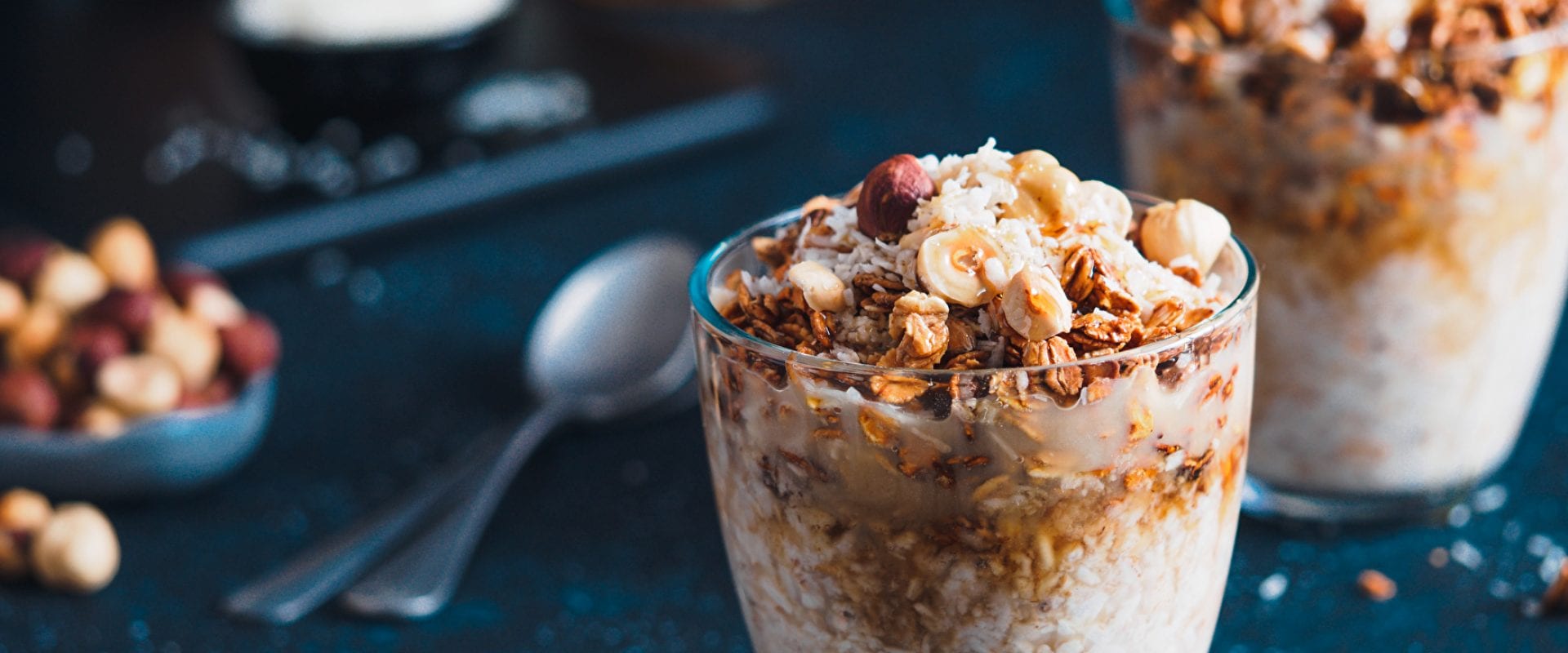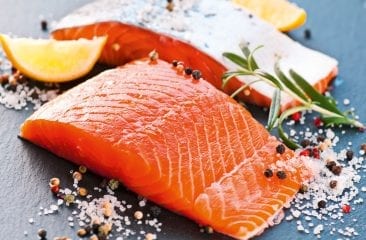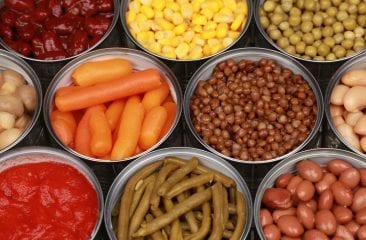Are you one of those people who just quickly buys a sandwich at lunchtime because our stressful everyday lives leave us hardly any time for a balanced diet? Or are you sometimes frustrated by the food on offer in the company canteen? If so, then meal prepping might provide you with a simple alternative. Read below what this modern-day term refers to, and why – if done correctly – it can impact positively on your diet.
Meal prepping – what’s behind the concept?
Isn’t that just something for real fitness professionals? Well, one thing we do know, is that this is not at all the case! But in fact the term comes from the sports scene in the USA. The fitness and bodybuilding professionals only copied something from their parents and grandparents – pre-cooking. In earlier extended families, cooking was the order of the day, after all, there were many hungry mouths to satiate and little time to prepare meals. In the sports scene, the concept was then modified with the aim of only using certain amounts of calories to be consumed in order to guarantee top performance of the athletes. Basically, the simple concept of meal prepping is suitable for anyone who decides on an organized and conscious lifestyle.
And how healthy is that?
Somehow everyone knows it: In a stressful everyday life, a balanced diet often falls short. We come home after a long day at work and then every now and then we reach for the finished product. It pays to be properly prepared for shopping and meal planning. A French study by the University of Paris with 40,000 participants was able to determine how positive meal planning has on the health of the respondents: People who plan meals tend to eat according to the French dietary guidelines, are less likely to be overweight and the choice of food is more diverse.
If you also finish all the prepared dishes, the meal planning even wins ecological plus points. On the one hand, targeted shopping and cooking in larger quantities causes less food waste . On the other hand, it is also resource-saving, as the stove , for example, is only used once instead of several times.

The preparation of the pre-cooking: plan, shop, prepare, enjoy
The first thing you should do is plan your nutrition plan thoroughly in advance. Question: What do I and my family like to eat? What do I feel like doing in the next week? But not only personal preferences should be taken into account, organizational factors must also be taken into account : which foods are in season , which can I buy regionally? When do I need how much food? How long can the components keep in the refrigerator? What do I need to freeze? What can I cook fresh?
In the next step, ideally, write down all the groceries you need on a shopping list and thus save a lot of time with weekly shopping.
The preparation is now much faster thanks to your planning. In some cases it does not make sense to pre-cook all dishes for the whole week, but only individual components. For example, you can prepare rice and then freeze portions of it for the end of the week, while you should cook pasta fresh or it will become too.
When you start your week now, food preparation will be very quick. Simply combine your individual components and conjure up a delicious main course in just a few minutes.
Storage
It is best to store your individual menu components in individual containers so that the full aroma is retained. Sealable and reusable glass or plastic cans are suitable for storage . Depending on the type and duration of storage, the foods have different shelf lives. A little tip: It is best to keep your components fresh if you store sauces or dips in separate containers.

Recipe ideas
A simple idea for the colder season is, for example, a creamy pumpkin soup. Freeze the soup pre-portioned. Potatoes can also be well pre-cooked. You can consume part of the boiled potatoes with herb quark, for example. The rest of the potatoes are suitable for making a hearty vegetable casserole. It is also ideal to use basic ingredients such as rice, quinoa, or couscous to use and combine in different dishes. In addition to the starch component, chicken breasts or lean beef are good companions. For the vegetarians, lentils or optionally fried zucchini, aubergine or carrot are suitable. These can also be used in salads and wraps. You can also experiment with different herbs and spices!
Another quick breakfast idea are overnight oats. The preparation couldn’t be simpler:
- 50 g oatmeal
- About 150 ml of milk or plant-based drink
- Spices according to preference
- Fruit according to preference
- Nuts, kernels, seeds according to preference

Mix the oat flakes with the liquid and spices in a simple screw-top jar and leave it in the refrigerator overnight. The next day, just add ingredients of your choice and you have a real energy breakfast for the morning. You can also try the recipe with plain yogurt.
Practice creates masters
Of course, newcomers also face major challenges when pre-cooking meals. For example, the motivation to eat healthier can quickly dwindle if there is a one-sided choice of food and the associated lack of nutrients. Because then the desire for sweets is inevitable. Sometimes the meal prepping trend is getting in the way of our eating habits and also our everyday life. Spontaneous invitations to eat or “Today I’m more interested in something else” are difficult to plan when the food is already cooked waiting in the fridge. However, individual planning can help against this. Meal preparation is also worthwhile just a day or two in advance. Give it a try and simply prepare double the amount when cooking in the evening.




